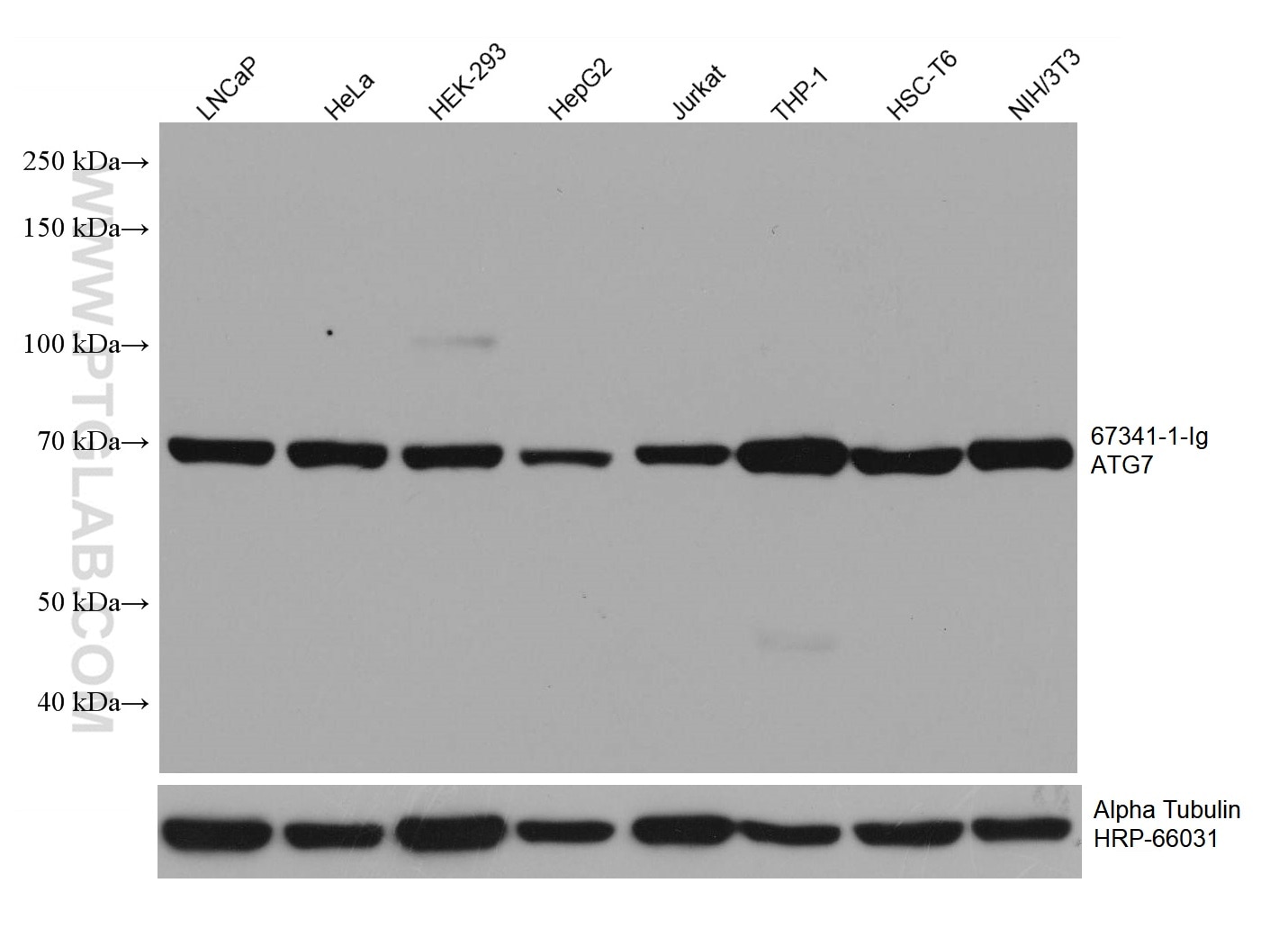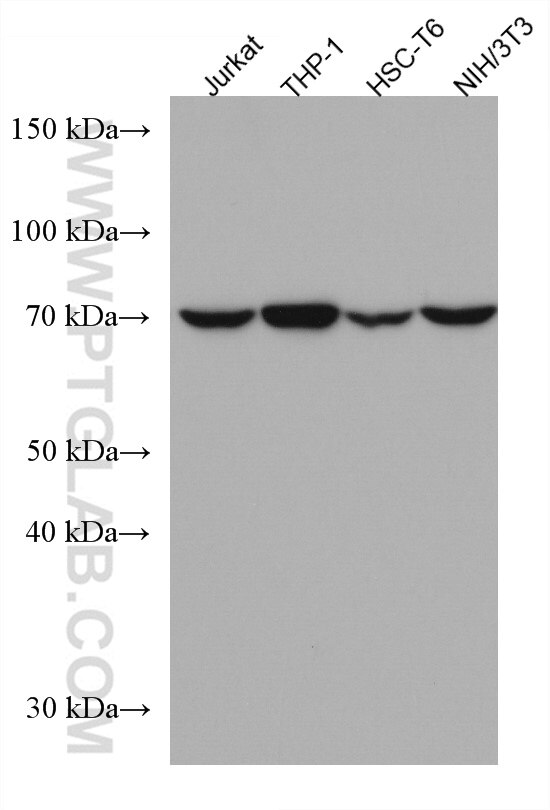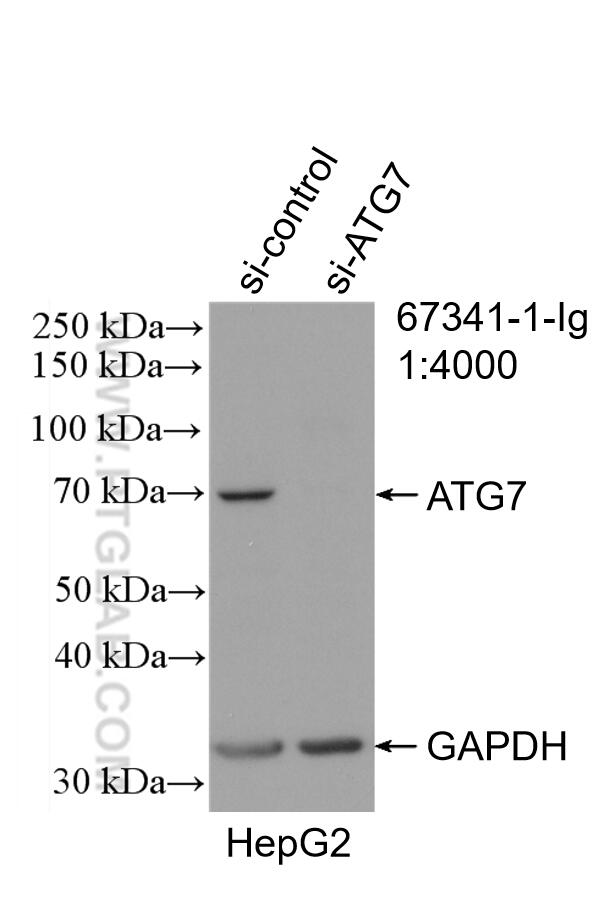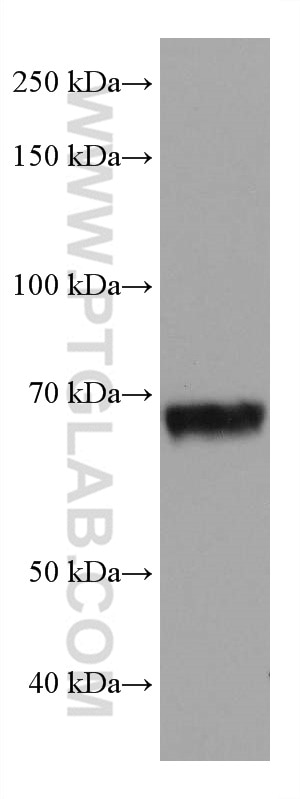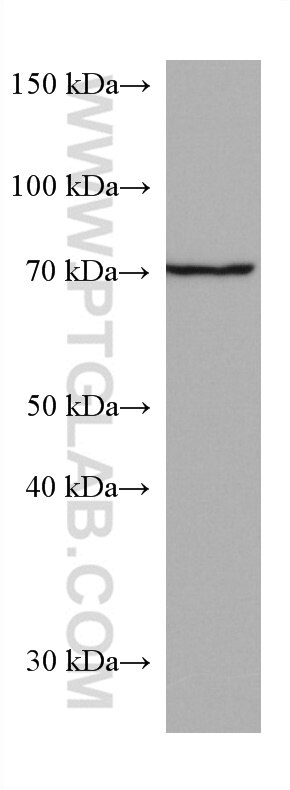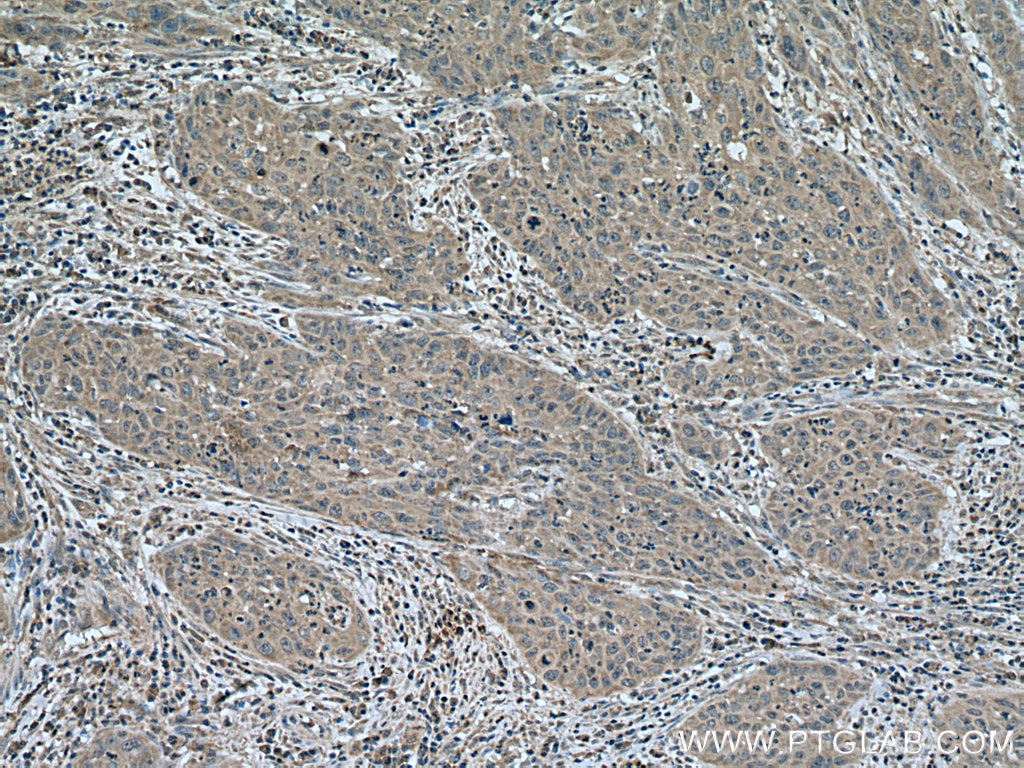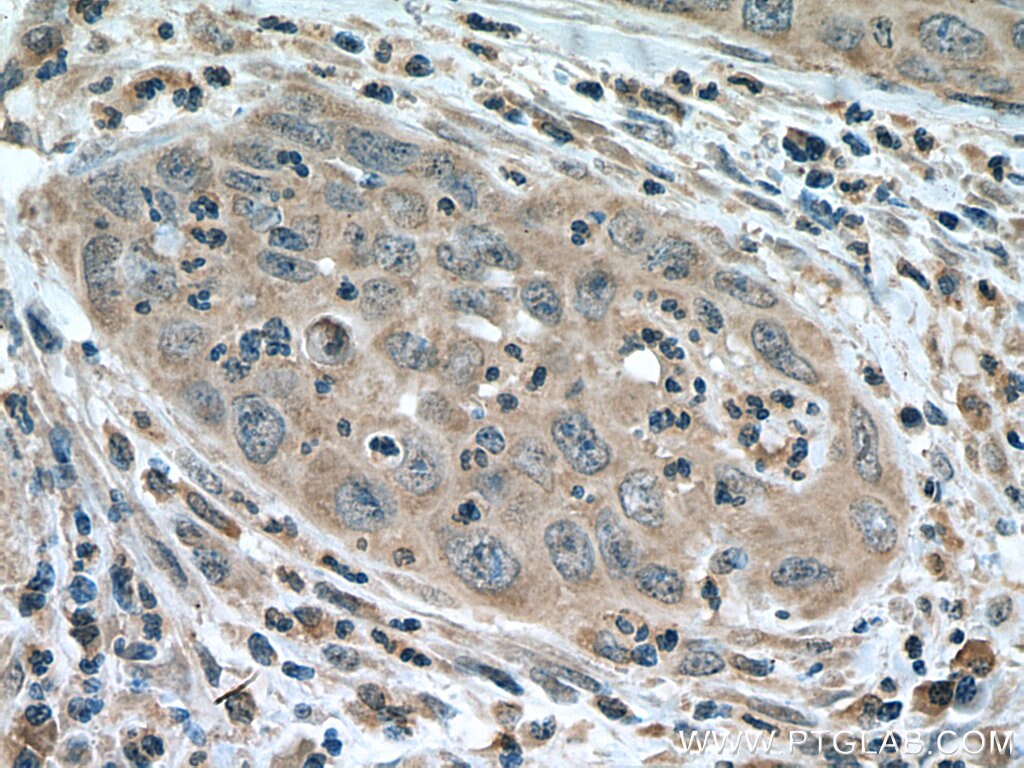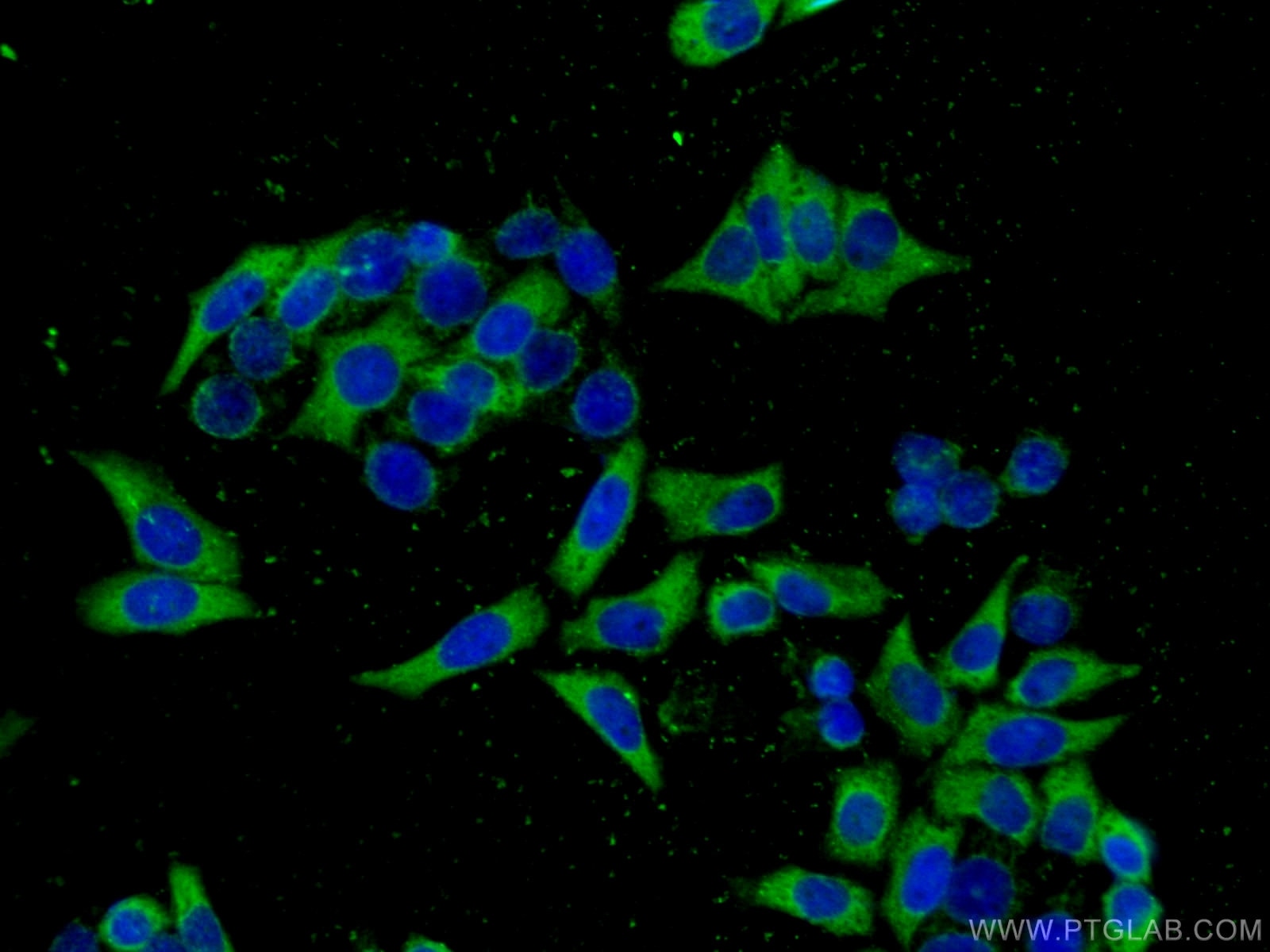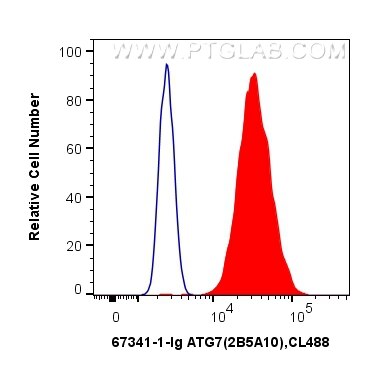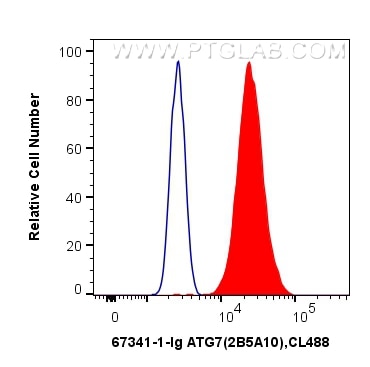- Phare
- Validé par KD/KO
Anticorps Monoclonal anti-ATG7
ATG7 Monoclonal Antibody for FC, IF, IHC, WB, ELISA
Hôte / Isotype
Mouse / IgG2a
Réactivité testée
Humain, porc, rat, souris et plus (1)
Applications
WB, IP, IHC, IF, FC, ELISA
Conjugaison
Non conjugué
CloneNo.
2B5A10
N° de cat : 67341-1-Ig
Synonymes
Galerie de données de validation
Applications testées
| Résultats positifs en WB | cellules LNCaP, cellules 4T1, cellules HEK-293, cellules HeLa, cellules HepG2, cellules HSC-T6, cellules Jurkat, cellules NIH/3T3, cellules THP-1, tissu splénique de porc |
| Résultats positifs en IHC | tissu de cancer du col de l'utérus humain, il est suggéré de démasquer l'antigène avec un tampon de TE buffer pH 9.0; (*) À défaut, 'le démasquage de l'antigène peut être 'effectué avec un tampon citrate pH 6,0. |
| Résultats positifs en IF | cellules HeLa, |
| Résultats positifs en cytométrie | cellules HeLa, |
Dilution recommandée
| Application | Dilution |
|---|---|
| Western Blot (WB) | WB : 1:5000-1:50000 |
| Immunohistochimie (IHC) | IHC : 1:500-1:2000 |
| Immunofluorescence (IF) | IF : 1:50-1:500 |
| Flow Cytometry (FC) | FC : 0.50 ug per 10^6 cells in a 100 µl suspension |
| It is recommended that this reagent should be titrated in each testing system to obtain optimal results. | |
| Sample-dependent, check data in validation data gallery | |
Applications publiées
| KD/KO | See 3 publications below |
| WB | See 23 publications below |
| IHC | See 1 publications below |
| IF | See 3 publications below |
| IP | See 1 publications below |
Informations sur le produit
67341-1-Ig cible ATG7 dans les applications de WB, IP, IHC, IF, FC, ELISA et montre une réactivité avec des échantillons Humain, porc, rat, souris
| Réactivité | Humain, porc, rat, souris |
| Réactivité citée | rat, canin, Humain, souris |
| Hôte / Isotype | Mouse / IgG2a |
| Clonalité | Monoclonal |
| Type | Anticorps |
| Immunogène | ATG7 Protéine recombinante Ag29172 |
| Nom complet | ATG7 autophagy related 7 homolog (S. cerevisiae) |
| Masse moléculaire calculée | 78 kDa |
| Poids moléculaire observé | 68-78 kDa |
| Numéro d’acquisition GenBank | BC000091 |
| Symbole du gène | ATG7 |
| Identification du gène (NCBI) | 10533 |
| Conjugaison | Non conjugué |
| Forme | Liquide |
| Méthode de purification | Purification par protéine A |
| Tampon de stockage | PBS avec azoture de sodium à 0,02 % et glycérol à 50 % pH 7,3 |
| Conditions de stockage | Stocker à -20°C. Stable pendant un an après l'expédition. L'aliquotage n'est pas nécessaire pour le stockage à -20oC Les 20ul contiennent 0,1% de BSA. |
Informations générales
Atg7 is an E1-like enzyme that is specifically involved in autophagosome formation and is essential for autophagy. As an autophagic-related protein it is required for linking to Atg12, Atg5 and Atg8, which are essential for Atg conjugation and autophagosome formation. Atg7 has been reported as an important regulator of autophagy with starvation-induced or chemotherapeutic agent treatment. The high expression level of ATG7 is related to the survival of patients with breast cancer. There are several isoforms of ATG7 protein ranged from 68 kDa to 78 kDa.
Protocole
| Product Specific Protocols | |
|---|---|
| WB protocol for ATG7 antibody 67341-1-Ig | Download protocol |
| IHC protocol for ATG7 antibody 67341-1-Ig | Download protocol |
| IF protocol for ATG7 antibody 67341-1-Ig | Download protocol |
| FC protocol for ATG7 antibody 67341-1-Ig | Download protocol |
| Standard Protocols | |
|---|---|
| Click here to view our Standard Protocols |
Publications
| Species | Application | Title |
|---|---|---|
Cancers (Basel) Nucleolar Stress Functions Upstream to Stimulate Expression of Autophagy Regulators. | ||
J Cell Physiol Cold exposure-induced endoplasmic reticulum stress regulates autophagy through the SIRT2/FoxO1 signaling pathway | ||
Stem Cell Res Ther Oncostatin M receptor regulates osteoblast differentiation via extracellular signal-regulated kinase/autophagy signaling. | ||
Front Pharmacol Cardamonin Reduces Acetaminophen-Induced Acute Liver Injury in Mice via Activating Autophagy and NFE2L2 Signaling. |
